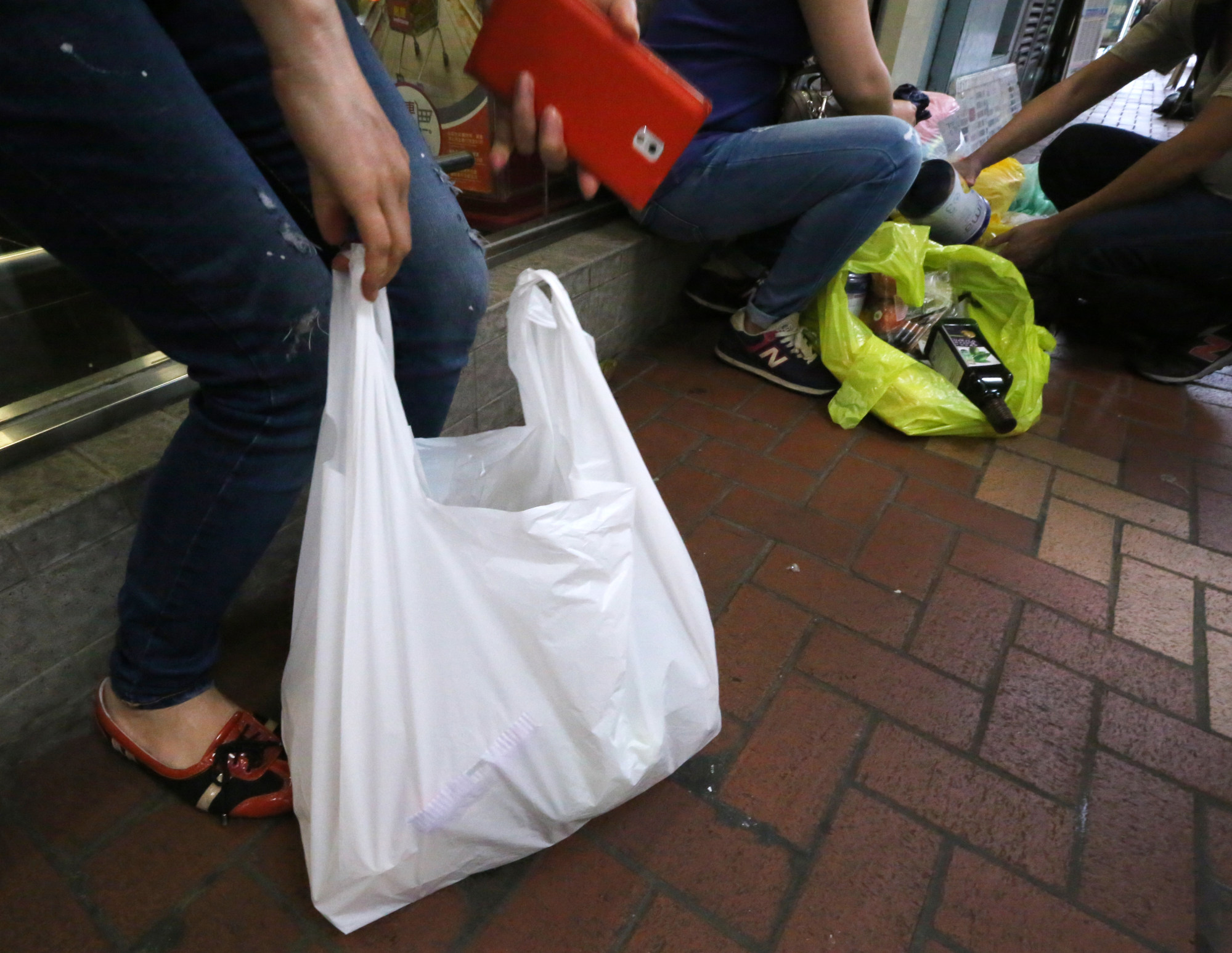
Hong Kong to press ahead with plan to double plastic bag levy to HK$1, waste charging scheme set to come into force next year
- Move is part of Waste Blueprint for Hong Kong 2035, under which the administration hopes to promote a ‘plastic-free’ culture
- Legco’s environmental affairs panel will discuss the plan at meeting next week
Hong Kong’s environmental authorities will press ahead with a proposal to double the city’s plastic bag levy to HK$1 (13 US cents) following a 13-year price freeze, with the bill to be tabled for lawmakers’ deliberation in the second quarter.
The government also gave a more concrete time frame for implementing a long-touted waste charging scheme, which is expected to come into force in the second half of next year.
The Environment Bureau’s plan, revealed in a paper submitted to the Legislative Council, followed waste reduction recommendations from the Council for Sustainable Development last week. Among these, the bureau was advised to increase the levy for plastic shopping bags from 50 HK cents to HK$1 or HK$2.
Legco’s environmental affairs panel will discuss the plan at a meeting on Monday.
The move is part of the Waste Blueprint for Hong Kong 2035, under which the administration hopes to promote a “plastic-free” culture amid ever-growing mountains of rubbish.
“The medium-term goal [of the blueprint] is to gradually reduce the per capita municipal solid waste disposal rate by 40 to 45 per cent,” the bureau said in the paper.
“The long-term goal is to develop adequate waste-to-energy facilities, so as to move away from the reliance on landfills … and achieve ‘Zero Landfill’ in around 2035.”
Under the plan, the bureau will also lift levy exemptions for frozen and chilled foodstuffs, under which plastic bags are currently given to customers for free for public hygiene reasons.
Takeaway food will receive exemptions, but eateries can only give customers one plastic bag for free. The bureau said it would introduce guidelines and allow the retail sector and the public to prepare for the new measures before they took effect.
However, environmental groups criticised the proposed changes as too little, too late.
“The changes are neither updated nor effective. Raising the shopping bag levy has no deterrence effect,” said Angus Ho Hon-wai, executive director of Greeners Action.
“The government has missed the point. It isn’t enough if the public can afford the levy. Any change must be potent enough to make people change their shopping habits.”
“In Africa, 34 countries have outright banned plastic bag use. But I can’t see any determination from the Hong Kong government to cut plastic bags.”
Leanne Tam Wing-lam, a Greenpeace campaigner specialising in plastic waste management, said: “What is important is that the government can regulate businesses so that they will provide consumers with plastic-free shopping options.
“It is wrong for the government to keep building new waste-to-energy facilities, meaning incinerators. It is a distraction. Burning garbage still emits carbon. Many places, such as Denmark, Australia and Connecticut in the United States, have stopped building incinerators.”
Wholesale and retail sector lawmaker Peter Shiu Ka-fai also said he doubted the rise in the levy would be effective enough to deter consumers from cutting back on plastic bags.
“I think HK$1 is an affordable price for most consumers, especially those who have got used to buying plastic bags,” he said.
“I believe it is not going to be effective. Those who would stop using plastic bags would have been deterred when the levy when first launched. Those not deterred would continue using them regardless.”

The levy was first introduced in 2009, targeting about 3,000 supermarkets, convenience stores, pharmacy chains and cosmetics shops, with full implementation of the law taking effect in April 2015.
The disposal quantity of plastic bags declined by a quarter within the first year. But the number of shopping bag disposal has rebounded since, according to the paper.
Separately, the waste charging scheme, which the bureau said was a “main driving force” behind waste reduction, was expected to be in place in the second half of next year, the bureau said in the paper, adding it would provide the city’s 2.9 million households with free designated garbage bags to help residents adapt to the charging arrangement.
Under the policy, garbage bags will be priced at 11 cents per litre with nine different sizes. Authorities will also set up thousands of sales points in supermarkets, convenience stores, pharmacies, post offices and online platforms, and install vending machines at public transport interchanges and piers to sell the bags.
Legco approved amendments to the Waste Disposal Ordinance last August to introduce the charges for municipal solid waste. The government was given 18 months to prepare for the charging arrangements.

